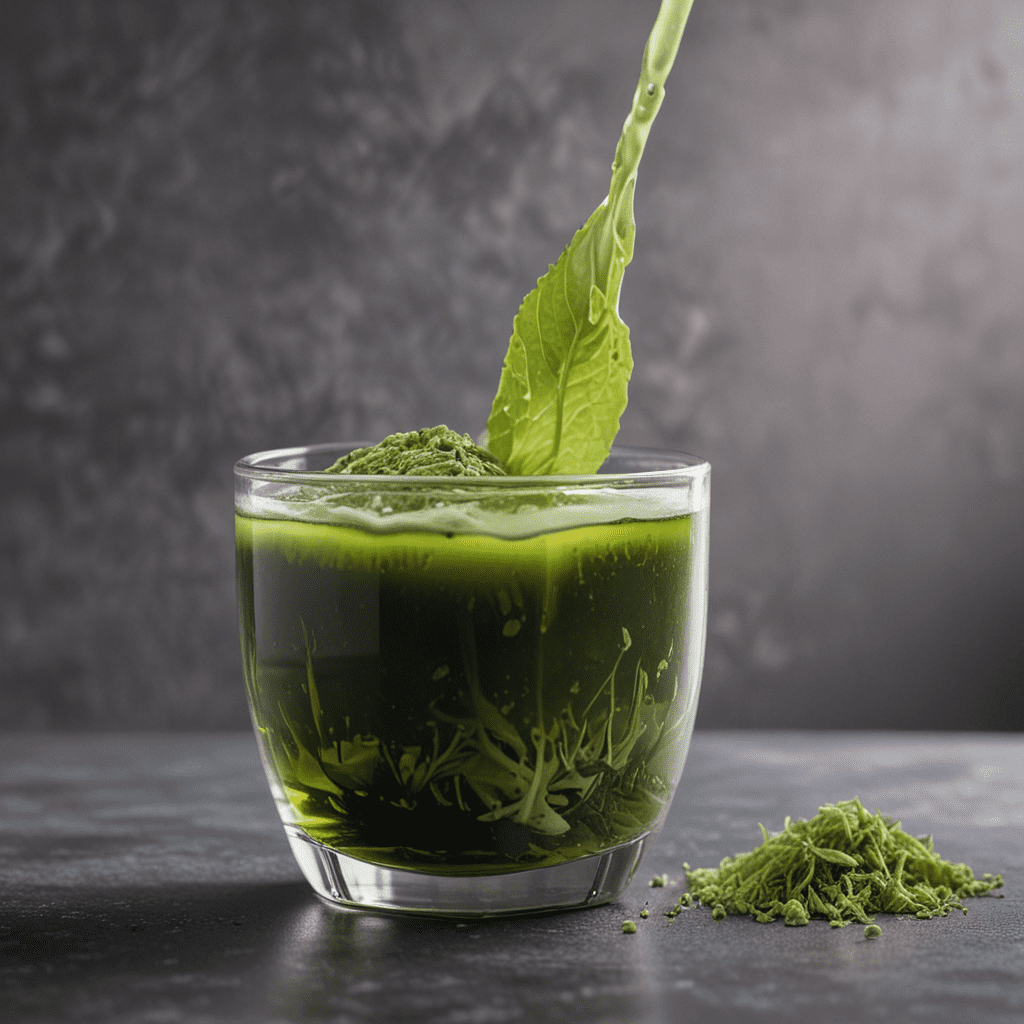
Matcha and Blood Circulation: Green Tea’s Impact on Cardiovascular Health
I. Introduction:
Maintaining optimal cardiovascular health is crucial for overall well-being. The consumption of matcha, a finely ground green tea powder, has emerged as a potential dietary intervention. This unique tea, rich in catechins, particularly epigallocatechin gallate (EGCG), holds promising implications for improving various aspects of cardiovascular function.
II. Matcha: Richness in Catechins
Matcha is renowned for its abundance of catechins, a group of polyphenols with potent antioxidant capabilities. Among these catechins, EGCG stands out as the most prevalent and biologically active compound. EGCG exhibits exceptional antioxidant properties, neutralizing free radicals that can damage cells and contribute to chronic conditions, including cardiovascular diseases.
III. EGCG and Vascular Function:
EGCG plays a significant role in enhancing vascular function. It exerts vasodilatory effects, promoting relaxation of blood vessels and improving blood flow. This action helps regulate blood pressure and reduces the risk of hypertension. Additionally, EGCG inhibits platelet aggregation, diminishing the likelihood of clot formation and improving overall blood circulation.
IV. Matcha and Heart Disease Prevention:
Matcha consumption has been associated with a reduced risk of heart disease. Its antioxidant properties combat oxidative stress and inflammation, two key factors contributing to cardiovascular ailments. Moreover, matcha helps lower cholesterol and triglyceride levels, further reducing the burden on the heart.
V. Matcha’s Role in Blood Glucose Control:
Matcha has demonstrated positive effects on blood glucose control. It improves insulin sensitivity, enabling the body to utilize glucose more efficiently. This enhanced insulin sensitivity contributes to better blood vessel function and reduces the risk of metabolic disorders, such as type 2 diabetes, which can adversely affect cardiovascular health.
VI. Matcha and Blood Pressure Regulation:
Matcha's vasodilatory effects extend to blood pressure regulation. Its ability to relax blood vessels contributes to lower blood pressure readings. Long-term consumption of matcha has been associated with a reduced risk of developing hypertension, a major risk factor for cardiovascular disease.
VII. Matcha’s Impact on Coagulation:
Matcha has shown promise in inhibiting thrombosis formation, the process of blood clot formation. EGCG's antiplatelet properties reduce the tendency of platelets to clump together and lead to blockage in blood vessels. Additionally, matcha enhances fibrinolysis, the breakdown of blood clots, promoting overall blood flow and reducing the risk of clotting disorders.
VIII. Anti-inflammatory Effects of Matcha:
Inflammation plays a significant role in the development of cardiovascular diseases. Matcha's anti-inflammatory effects help combat this process. EGCG suppresses the production of pro-inflammatory cytokines, reducing inflammation within the cardiovascular system. This protection against endothelial damage further enhances blood circulation and cardiovascular health.
IX. Clinical Evidence and Research Support:
Human and animal studies have provided substantial evidence supporting matcha's cardiovascular benefits. Randomized controlled trials have demonstrated improvements in blood pressure, arterial stiffness, and lipid profiles with regular matcha consumption. Animal studies have further elucidated the mechanisms behind EGCG's protective effects on the cardiovascular system. Despite promising findings, further research is warranted to establish optimal matcha consumption guidelines and long-term effects.
X. Conclusion:
Matcha stands as a promising dietary adjunct for promoting cardiovascular health. Its richness in catechins, particularly EGCG, exerts a range of beneficial effects, including improved vascular function, reduced inflammation, and enhanced blood pressure regulation. While clinical evidence supports matcha's cardiovascular benefits, ongoing research is necessary to fully understand the optimal dosage and long-term impact on human health. Matcha's natural and wholesome properties make it a valuable addition to a heart-healthy lifestyle, inviting further exploration of its therapeutic potential.
FAQs:
- How much matcha should I consume daily for cardiovascular health?
Optimal daily matcha consumption for cardiovascular benefits may vary depending on individual factors. It's recommended to consult with a healthcare professional or registered dietitian to determine the most suitable dosage for your specific needs.
- Is matcha safe for people with heart conditions?
Matcha is generally considered safe for most people, including those with heart conditions. However, individuals with pre-existing heart conditions or taking blood-thinning medications should consult their doctor before consuming matcha.
- Does matcha interact with any medications?
Matcha may interact with certain medications, including blood thinners and antiplatelet drugs. It's essential to inform your healthcare provider about any medications you're taking before consuming matcha to avoid potential interactions.

